High blood pressure Stage 1: Understanding the Basics
High blood pressure, generally known as high blood pressure, is a chronic clinical problem that influences numerous people worldwide. It is characterized by the force of blood against the wall surfaces of the arteries exceeding the regular range, resulting in potential health and wellness threats. Hypertension is classified right into different phases relying on the seriousness of the problem. In this article, we will depanten forum focus on high blood pressure stage 1, its causes, signs, diagnosis, and therapy alternatives.
What is Hypertension Stage 1?
Hypertension stage 1 describes the early stage of high blood pressure, where the systolic blood pressure constantly ranges between 130-139 mm Hg or the diastolic high blood pressure ranges in between 80-89 mm Hg. Systolic blood pressure represents the pressure exerted on the artery wall surfaces when the heart beats, whereas diastolic high blood pressure mirrors the force when the heart goes to remainder in between beats. These analyses are measured in millimeters of mercury (mm Hg).
It is very important to note that a solitary raised reading does not promptly indicate hypertension phase 1. A diagnosis of high blood pressure typically requires multiple raised analyses over a time period. Moreover, medical care professionals consider various other factors, such as age, case history, and also overall health, before identifying an individual’s high blood pressure stage.
People diagnosed with high blood pressure stage 1 are at a greater risk of developing heart problem, stroke, as well as various other cardiovascular difficulties compared to those with regular blood pressure levels.
- Root Causes Of Hypertension Phase 1:
The exact root cause of high blood pressure phase 1 can vary from one person to another. Nevertheless, numerous aspects contribute to the advancement as well as progression of the condition. These include:
- Genetic tendency: Household background of high blood pressure increases the probability of establishing the problem.
- Unhealthy way of living: Poor nutritional options, lack of exercise, too much alcohol consumption, and tobacco use contribute to high blood pressure.
- Obesity: Being overweight or obese puts additional stress on the heart as well as capillary, leading to raised blood pressure.
- Stress: Persistent stress can boost high blood pressure levels as well as negatively influence overall cardiovascular health and wellness.
- Hidden medical conditions: Certain medical problems, such as kidney illness, hormonal disorders, as well as sleep apnea, can contribute to hypertension.
Signs and also Medical diagnosis
Hypertension phase 1 is commonly considered a quiet condition since it hardly ever provides noticeable symptoms. Most individuals with high blood pressure are not aware of their problem till it is found throughout a routine exam or when issues occur.
Routine blood pressure surveillance is vital for spotting high blood pressure early. Health care specialists utilize a blood pressure cuff and a stethoscope or a computerized device called a sphygmomanometer to gauge blood pressure. The readings are taped as 2 numbers, with the systolic stress appearing very first and the diastolic pressure secondly.
Along with determining blood pressure, healthcare providers might suggest additional tests to assess the total health and wellness as well as potential underlying causes of hypertension phase 1. These tests might include blood examinations, pee evaluation, electrocardiogram (ECG), as well as imaging research studies to evaluate the heart as well as blood vessels.
Therapy Options
The management of high blood pressure stage 1 usually involves testoy iskustva a mix of way of living adjustments as well as, in some cases, medication. The key goal of treatment is to lower blood pressure and reduce the danger of connected difficulties.
- Way of living Alterations:
1.Nutritional adjustments: Taking on a heart-healthy diet, such as the Dashboard (Nutritional Techniques to Stop Hypertension) diet regimen, that includes fruits, vegetables, whole grains, lean proteins, as well as low-fat milk products while limiting sodium intake, can assist manage high blood pressure.
2.Routine physical activity: Participating in aerobic exercises, such as vigorous walking, jogging, cycling, or swimming, for about 150 mins weekly can have a positive effect on high blood pressure levels.
3.Weight monitoring: Shedding excess weight through a mix of healthy eating and normal exercise can substantially lower blood pressure.
4.Stress and anxiety decrease: Exercising tension management strategies, such as meditation, deep breathing workouts, as well as yoga, can help reduce high blood pressure.
5.Minimal alcohol usage: Regulating alcohol intake to suggested limits (up to one drink per day for ladies and as much as two beverages each day for males) can contribute to much better high blood pressure control.
6.Cigarette cessation: Quitting smoking cigarettes and preventing pre-owned smoke are important for general cardiovascular wellness.
- Medication:
Sometimes, way of life adjustments alone may not suffice to take care of high blood pressure. Healthcare experts may recommend medicine to control high blood pressure stage 1. The choice of drug relies on different elements, including the individual’s total health and wellness, risk variables, and possible negative effects. Commonly suggested drugs for high blood pressure include angiotensin-converting enzyme (ACE) preventions, angiotensin II receptor blockers (ARBs), diuretics, beta-blockers, and also calcium channel blockers.
Verdict
High blood pressure phase 1 is an early stage of high blood pressure that calls for punctual interest and also ideal administration. While it may be asymptomatic, individuals identified with high blood pressure phase 1 are at a raised danger of creating significant cardiovascular complications. Routine high blood pressure tracking, way of life modifications, as well as, if necessary, medication can aid manage blood pressure and also reduce the threat of connected health issues. Consulting with a healthcare professional is important to develop a personalized therapy strategy as well as attain optimum blood pressure control.

